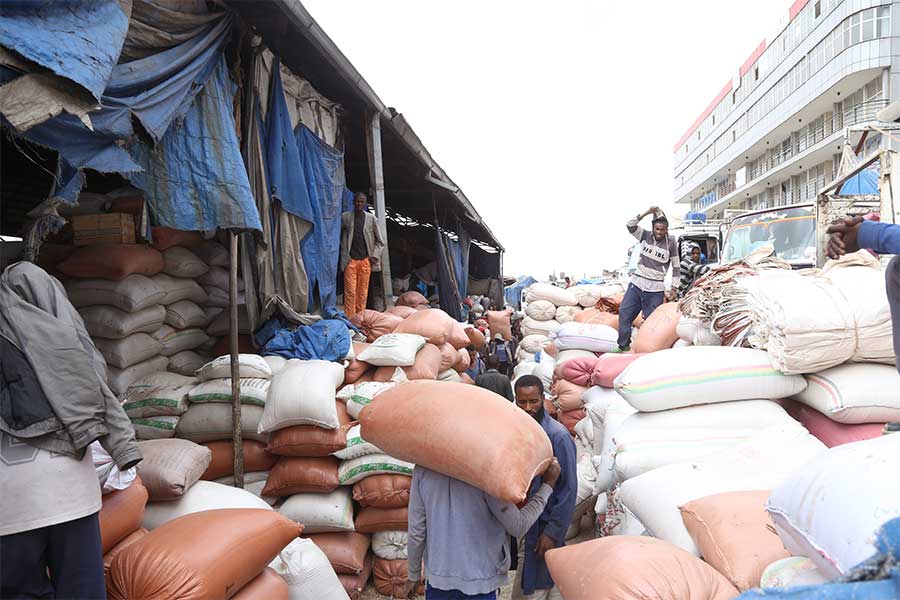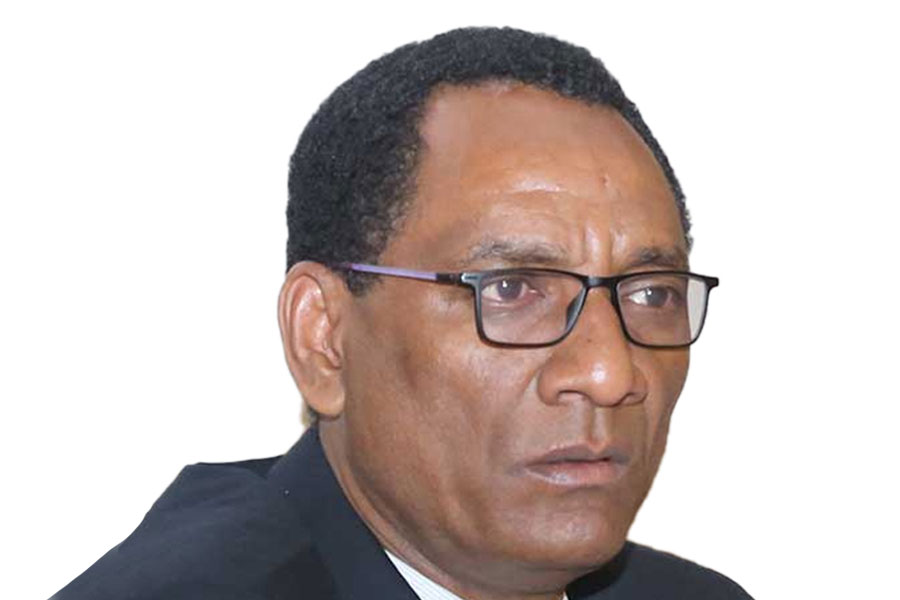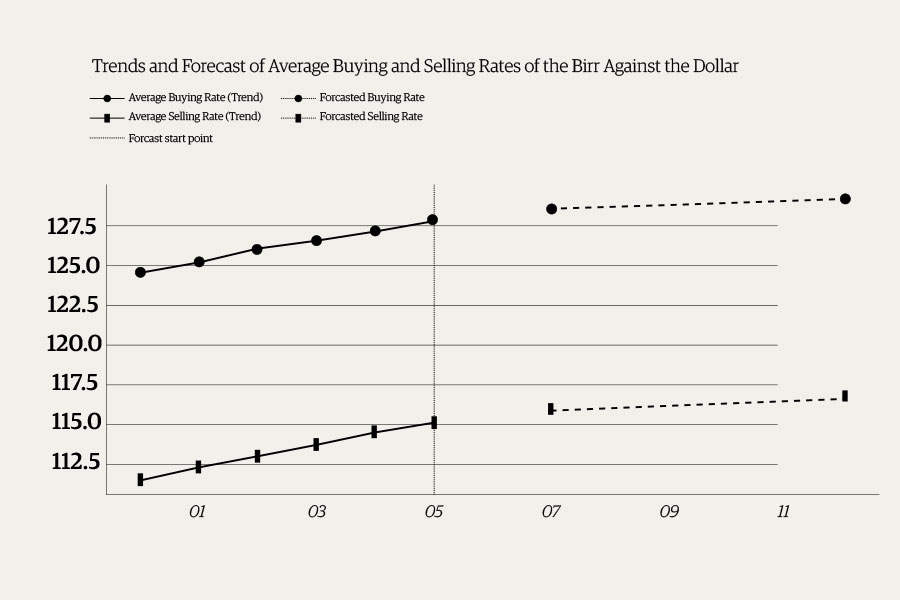
Agenda | Aug 18,2024
Jan 16 , 2021.
It was a sunny day on September 12, 1974. A machine gun mounted on top of a tank was standing in front of a fortified Jubilee Palace. There was a strange calm even as people gathered outside of the gates, if video documentaries are to be believed, in anticipation of the rumour that had swept the nation. Ethiopia’s nearly half a century old ruler, Emperor Haileselassie Mekonnen, was to be removed from the power he said he was anointed with by God.
Inside the Palace on Menelik II Avenue, in a room crowded with military officers, a young and junior officer named Debela Dinsa read to an emotionless Emperor what was essentially a declaration of the Imperial government's overthrow. The night before, the public had been treated on public TV to a damning documentary. It showed the Emperor celebrating a lavish birthday in the midst of a famine in the country's northeastern region. Emperor Haileselassie was summarily walked out of the Palace, murmuring that he would acknowledge his removal if it meant the good of the country and was ushered into a modest Volkswagen Beetle, never to be seen again.
Like the anniversary of the fall of the Dergue, which took over power from the Imperial government, September 12 would also be celebrated each year for as long as the military regime was in power.
The events over the next century were eerily similar. Only, as the tragedies repeat, it is not at all farcical. It is a more significant moment of tragedy.
Over the past two weeks, the capture of one of the most familiar Tigray People's Liberation Front (TPLF) figures, Sebhat Nega, was announced. Not long after, images of an emaciated, unshaven man in dirty clothes were broadcast on public TV. It was followed by Abay Weldu, former president of Tigray Regional State, and Abraham Tekeste (PhD), former minister of Finance. Over the past week, Seyoum Mesfin, the longest-serving Foreign Minister in Ethiopia’s history, was killed resisting arrest, according to the government. Abay Tsehaye, former minister of Federal Affairs, and Asmelash Hailesellaise, parliamentary whip, were also killed alongside.
It was yet one more reminder of how rulers of the country were being booted out in humiliation and defeat, broadcast on public TV and judged and convicted in the court of public opinion. It is an unnerving manifestation of what political transitions in Ethiopia entail. It is nothing but a recurrent nightmare.
Undoubtedly, this part is just the tip of the iceberg to the armed conflict's consequences between forces of the federal and Tigray regional states. After all, it has seen infrastructure destroyed, civilian lives lost, combatants killed, and tens of thousands run for their lives to a neighbouring country. Close to 4.5 million people are currently in need of food assistance, UN agencies say. Close to half of that require humanitarian aid. The interim government for the Regional State is currently struggling to rebuild the necessary bureaucratic apparatus to return the area to normalcy.
Considering that fighting is still going on in parts of the region and that the National Electoral Board does not imagine holding polling there this year, it is clear that a state of calm is a long way off.
But the salience of analysing the powerful image created in putting political figures in chains and parading them for camera goes a great length in explaining how nationalism is the tool that continues to be unleashed for holding the country together. There is a certain deal of shared traits between Emperor Haileselassie and the TPLF. Both are entities representing nationalisms of different colours. One can add the Dergueto this as well.
Each one of them has exercised hegemonic power, of varying degrees. For 17 years until 1991, a certain type of nationalism was trumpeted at the expense of others. Until 1974, a bureaucratic empire was attempted to be built upon an "ancient civilisation" to answer republicanism and the democratic nation-state ideals exported from Europe. Ethiopia was envisioned as a project of the nation-state.
The post-1991 period was supposed to be a break from this process of assimilationist nationalism. The victors who came on the heels of the military junta wanted to reimagine Ethiopia as a state for nations. The existing Constitution ratified in 1995 went as far as to include a provision that gives a right to self-determination up to secession, an unprecedented move worldwide. It allowed the formation of states along lingo-cultural lines, which share sovereignty with the federal government, and insisting that any nationalism that may come along could be accommodated within the Ethiopian state.
Even then, it was the TPLF-driven EPRDF that was left standing in the ring after nearly three decades of rule. Other social forces and movements that represented a variant of nationalisms were pushed out. In the end, an exclusivist nationalism is not as good an answer to state-building and democratisation than an assimilationist one.
There are some reasons why this is the case. One is the cover it gives to the worst criminal and murderous excesses of those with state power. The Derguewas a brutal military regime responsible for the deaths of hundreds of thousands of people. When pictures of Mengistu Hailemariam (Col.), its chairman until the end, are proudly displayed today on vehicles and buildings, it is not merely a symptom of short memory. It results from how the regime had successfully used itself as a symbolic expression of national sovereignty, history and territorial integrity.
In its task as a vehicle of nationalism, the TPLF, or other movements representing the different political aspirations of lingo-cultural groups, was not that far removed. In the end, they present themselves as nationalist expressions of the history, pride and dignity of the respective groups of people they purport to represent. They are allowed to be excused for the crimes they perpetrate, because they serve political aspirations much larger than themselves. More cruelly, they justify the commission of crimes because it is being perpetrated for a higher purpose.
“The nationalist not only does not disapprove of atrocities committed by his own side, but he has a remarkable capacity for not even hearing about them,” George Orwell wrote in "Notes on Nationalism."
Neither assimilationist nor exclusivist nationalisms are compatible with inclusive state-building processes. Unfortunately, as it has done before, the country is simply swapping one form for another, considering today's ascendant Ethiopian nationalism, as unbridled as it emerges. But for all of the virtues its supporters believe it has - and although it is indeed a form of political expression for sections of the population - flirting with nationalism will only make reconciliation and political settlements extremely unviable, if not impossible. It excuses the worst offences of its elite, entrenches political systems and leads to violent reactions to perceived change. It encourages the purging of contending ideas in its zeal to monopolise the political space.
This vicious cycle can be addressed. The Ethiopian state is a political project that is a circumstance of history. It can only be viable and acceptable in its citizens' eyes if it has the capability to reinvent itself. And it can by founding a state that is not the exclusive domain of some but cuts across lingo-cultural lines.
Arguably, this is what the ruling Prosperity Party claims to be aspiring to and even what the Ethiopian People’s Revolutionary Democratic Front (EPRDF) sought. But they are artificial constructs and unlikely to build on each of their support bases' common economic challenges considering that they are purely top-down projects.
With inequality rising, the ground is rich for political mobilisation built on class interests. Each region and ethnic group now has a large and economically underdeveloped peasant population and an emergent urban elite class.
The Gini Coefficient, a measure of income inequality, has increased in every regional state, without exception, according to the World Bank’s poverty assessment for the first half of the 2010s. The main reason is faster poverty reduction in urban areas than those of rural. Combined with the service and industry sectors employing an ever larger number of people and taking bigger shares of the gross domestic product (GDP), such differences will mean that communities in rural areas will have incentives to band together on broad issues such as land and income taxes.
It is a fortuitous development for a country whose modern politics is heavily influenced by the Leftist movements and struggles of the second half of the 20th century. Political mobilisation based on class will cut across nationalisms built on the concept of identity or even history. It will not mean that ethnic and civilisational discourses will completely disappear, but it can mean that politics would not necessarily be entrenched in exclusivist or assimilationist nationalisms. This is a good place to start.
PUBLISHED ON
Jan 16,2021 [ VOL
21 , NO
1081]

Agenda | Aug 18,2024

Radar | May 13,2023

Agenda | Mar 14,2020

Viewpoints | Sep 21,2019

Radar | Dec 01,2024

Verbatim | Apr 15,2023

Viewpoints | Mar 06,2021


Money Market Watch | Oct 06,2024

My Opinion | Oct 08,2022

Photo Gallery | 171869 Views | May 06,2019

Photo Gallery | 162107 Views | Apr 26,2019

Photo Gallery | 151859 Views | Oct 06,2021

My Opinion | 136326 Views | Aug 14,2021

Dec 22 , 2024 . By TIZITA SHEWAFERAW
Charged with transforming colossal state-owned enterprises into modern and competitiv...

Aug 18 , 2024 . By AKSAH ITALO
Although predictable Yonas Zerihun's job in the ride-hailing service is not immune to...

Jul 28 , 2024 . By TIZITA SHEWAFERAW
Unhabitual, perhaps too many, Samuel Gebreyohannes, 38, used to occasionally enjoy a couple of beers at breakfast. However, he recently swit...

Jul 13 , 2024 . By AKSAH ITALO
Investors who rely on tractors, trucks, and field vehicles for commuting, transporting commodities, and f...

Oct 5 , 2025 . By NAHOM AYELE
In Meqelle, a name long associated with industrial grit and regional pride is undergo...

Oct 5 , 2025 . By BEZAWIT HULUAGER
The federal government is set to roll out a new "motor vehicle circulation tax" in th...

Oct 5 , 2025 . By NAHOM AYELE
The Bank of Abyssinia is wrestling with the loss of a prime plot of land once leased...

Oct 5 , 2025 . By BEZAWIT HULUAGER
The Customs Commission has introduced new tariffs on a wide range of imported goods i...